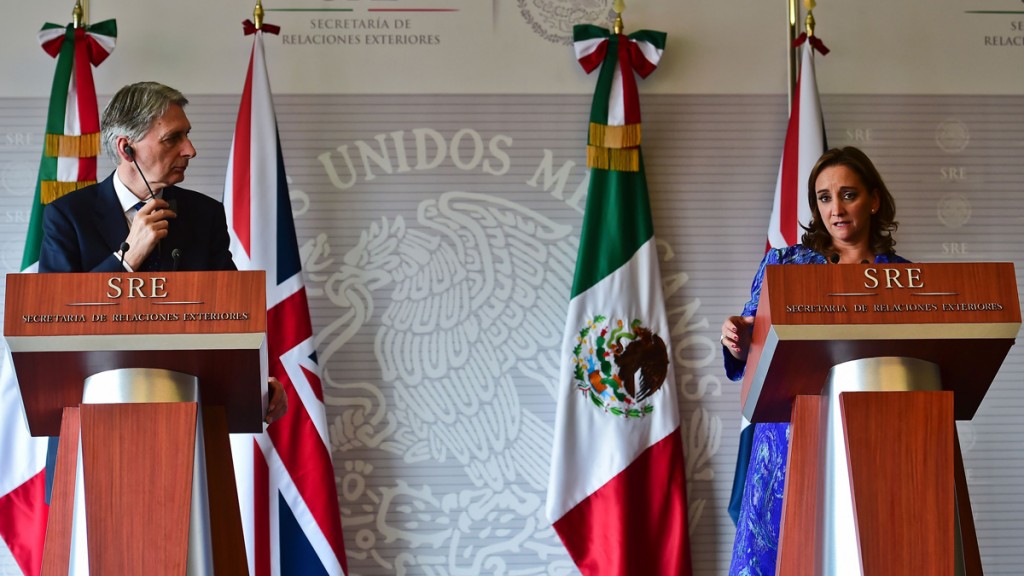
Now that the UK has voted to leave the EU, we face the prospect of having to establish new trade agreements from scratch. While this will certainly take a while and involve some hard graft, it’s not necessarily a bad thing.
The EU currently has 32 trade agreements in force. But its line-up of trading partners features some gaping holes. For example, the bloc is yet to secure agreements with economic powerhouses including Japan, the US, India, China and Australia.
That’s partly due to the difficulty of negotiating each agreement with 28 (or now 27) different states – each with different priorities and agendas. The pending EU-Canada trade deal has been held up for years by a dispute with Greece about the naming rights for feta cheese, according to Paul Marshall in the Financial Times.
It’s barely been a week since the EU referendum, but countries around the world are increasingly waking up to the trade possibilities offered by a newly-liberated UK.
The US
A couple of weeks ago Barack Obama waded into the referendum debate, urging voters to remain in the EU. Britain would be at the “back of the queue” for a new trade agreement with the US, he said. However, since Friday, Obama has changed his tune, emphasising the historic “special relationship” between the two countries.
A number of senior economists in the US have suggested that it will be easier to negotiate a new trade deal with Britain without interference from the 27 remaining EU countries. “The “back of the queue” statement will be forgotten by the next administration, if not sooner”, said Gary Hufbauer, a senior fellow at the Peterson Institute of International Economics.
The US Treasury Secretary, Jack Lew, and Secretary of State, John Kerry, have both refrained from repeating Obama’s trade warning. Meanwhile, the speaker of the House of Representatives, Paul Ryan, has already called for the US to pursue a free trade agreement with the UK, arguing that discussions should begin now in order to ensure a “smooth trade relationship”.
India
A key potential trade partner, India is a country with a rapidly growing economy and a population set to hit 1.7 billion by 2040. While the EU has failed to conclude talks on a trade deal with the economic giant, Indian policymakers believe that they could quickly negotiate a new agreement with post-EU Britain.
“The UK is going to look to build its relationships with the rest of the world, and will seek to pursue new opportunities with us”, India’s deputy finance minister, Jayant Sinha, told the Financial Times this week.
Australia and New Zealand
Both Australia and New Zealand have been negotiating a free trade agreement (FTA) with the EU, but have now turned their priorities to the UK. The leader of New Zealand’s centre-left Labour Party has asserted that the country should draw on its relationship with the UK to ensure future trade. And nationalist party New Zealand First’s leader Winston Peters has said that “a trade deal with the UK is an absolute priority”.
Meanwhile, Australian Prime Minister Malcolm Turnbull has suggested New Zealand and Australia could team up to negotiate a single deal with the UK.
Mexico
Mexico is a step ahead of the pack, having already drafted a trade agreement with the UK. According to the FT, it drew up the document as a part of a trio of measures intended to soften the blow of a Brexit on the Mexican economy.
The country has had a trade agreement in place with the EU since 2000, and while only about 0.7% of Mexican exports go to Britain the country’s finance minister said he sees Brexit as a “great opportunity”.
Iceland
Iceland was the first country to announce it was considering offering a trade deal to the UK following the referendum. Olafur Ragnar Grimsson, Iceland’s president, invited British businesses to join a “key area in the north” including Greenland, Iceland, Norway and the Faroe Islands – all either members of the European Economic Area (EEA) or overseas territories whose people have EU citizenship.
However, experts have noted that joining the EEA would require the UK to have full freedom of movement – a policy unlikely to fly with prominent Leave campaigners.
South Korea
On Friday, Seoul’s top diplomat, Yun Byung-se, said he wanted a bilateral free-trade agreement with London. The UK’s business secretary, Sajid Javid, revealed that the South Korean government had contacted him with a view to starting trade talks as soon as possible.